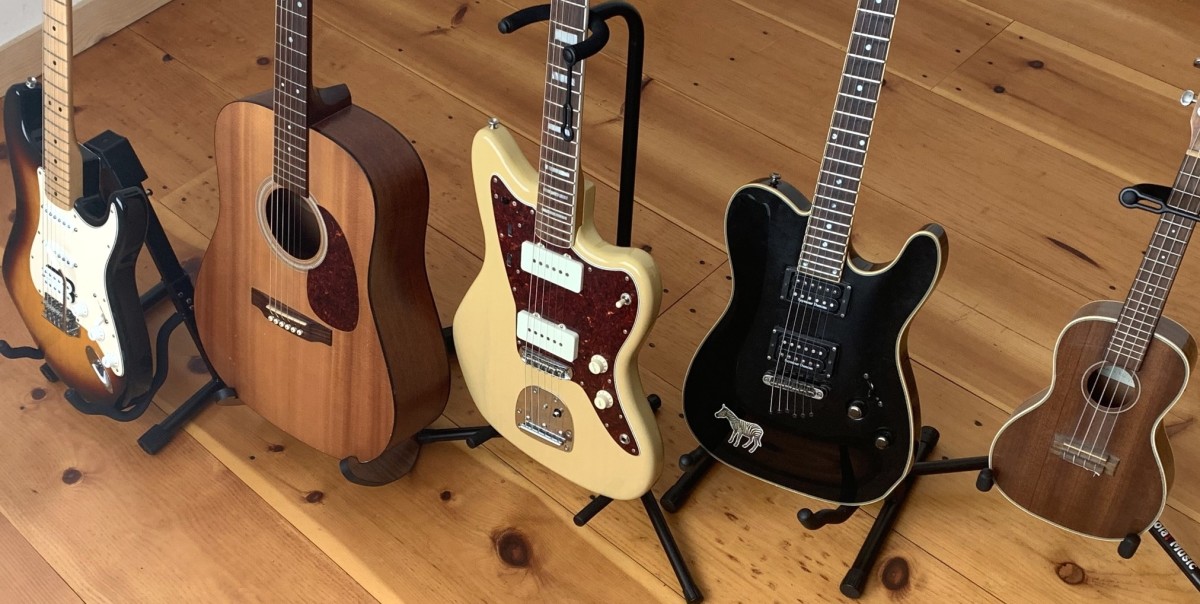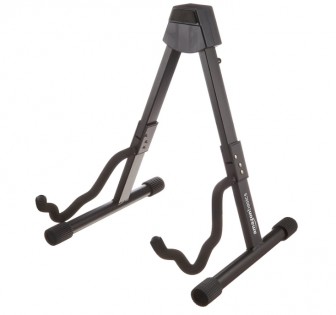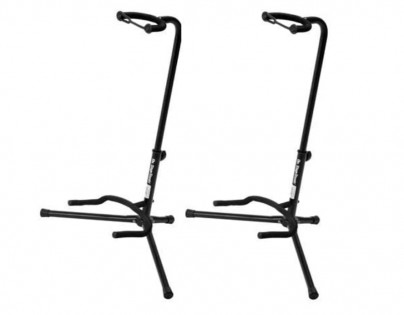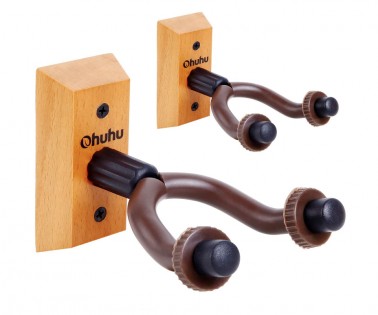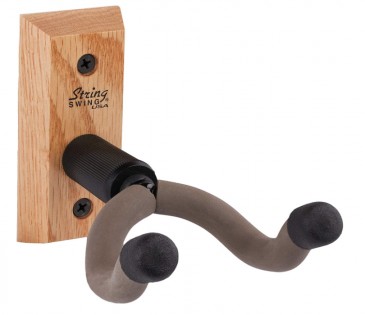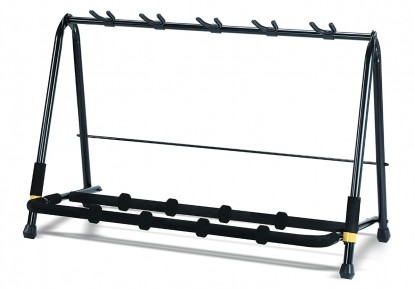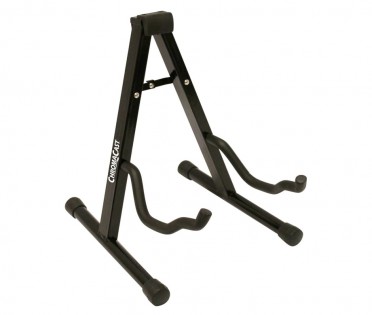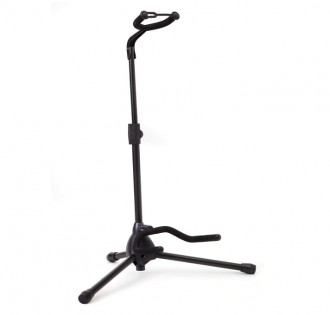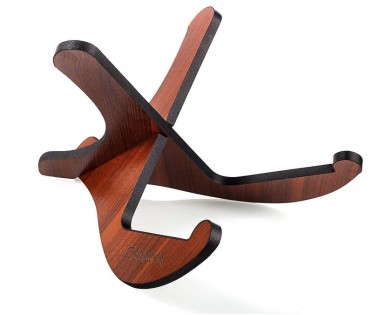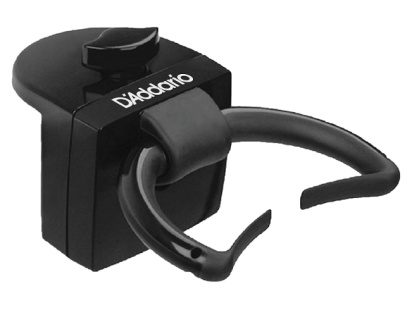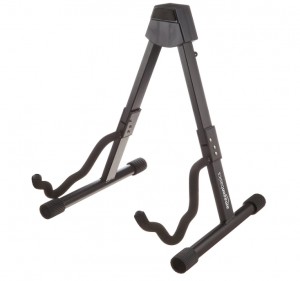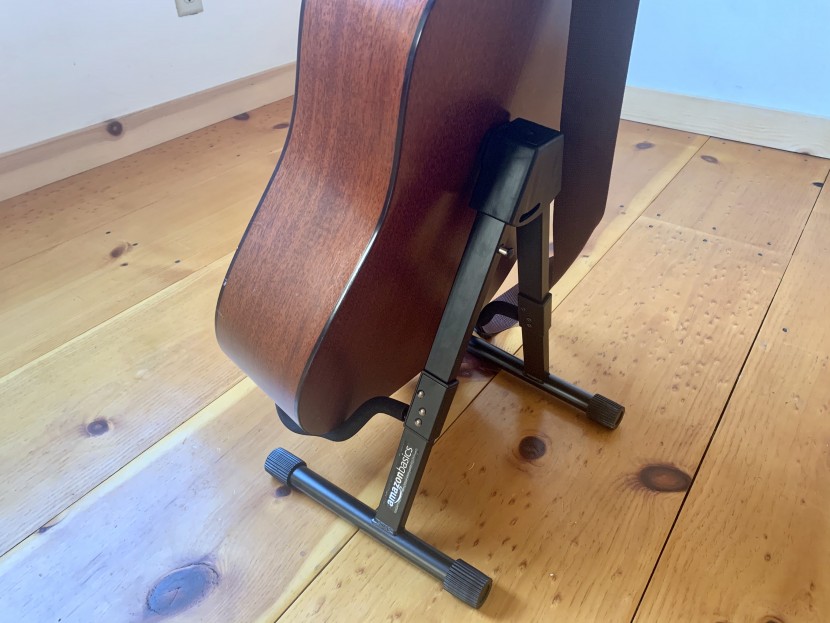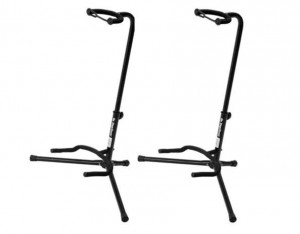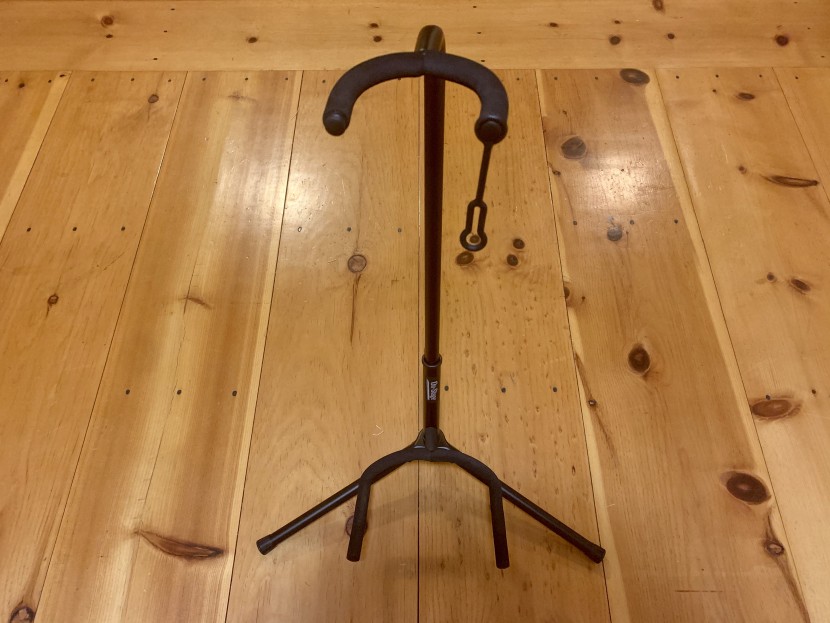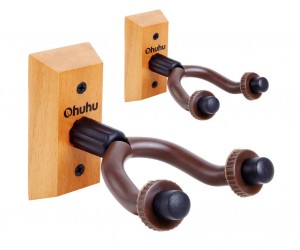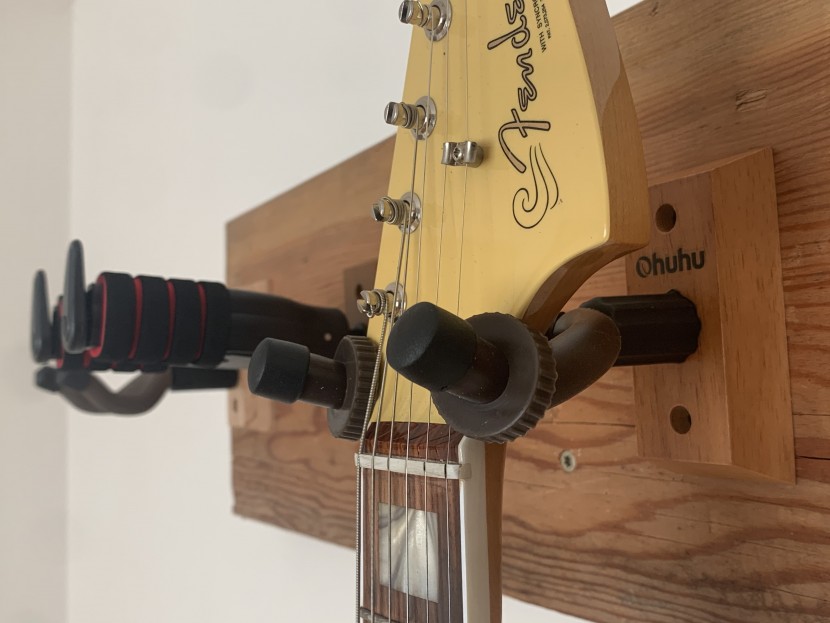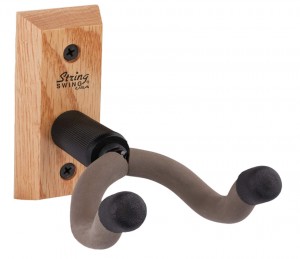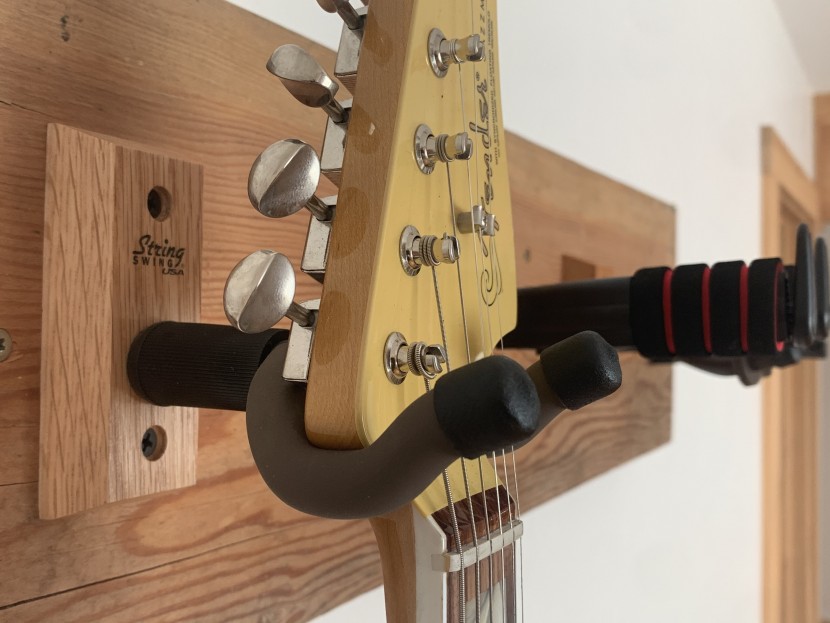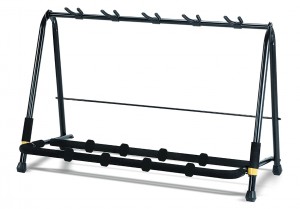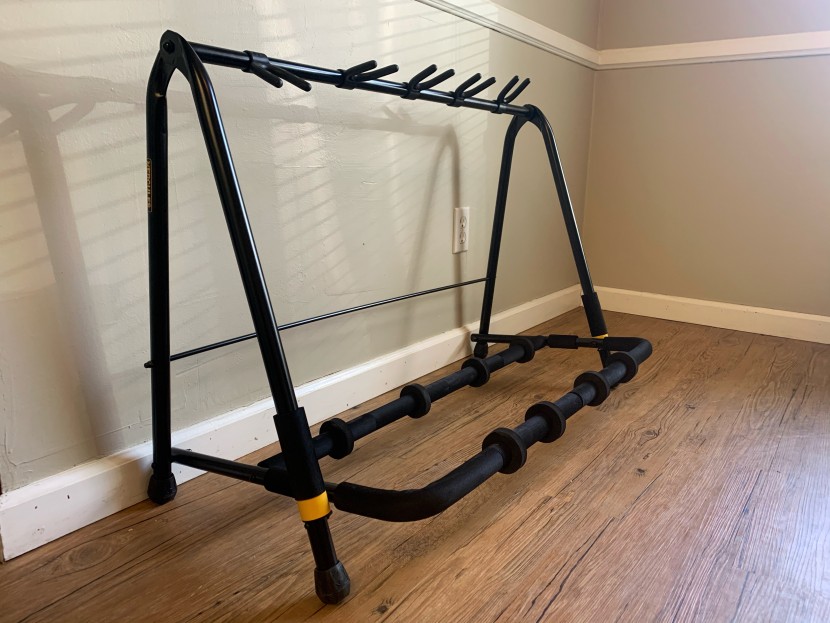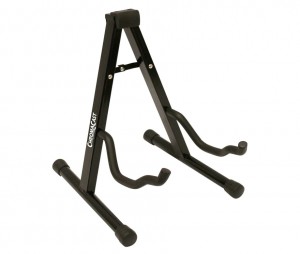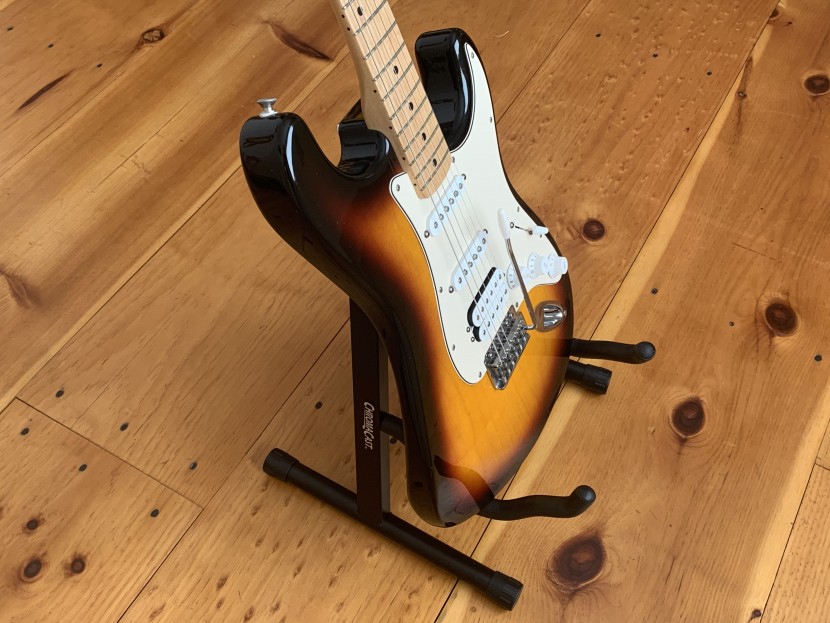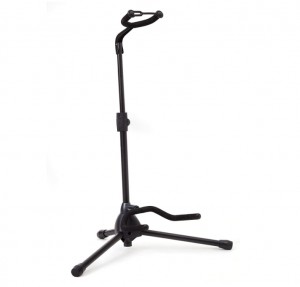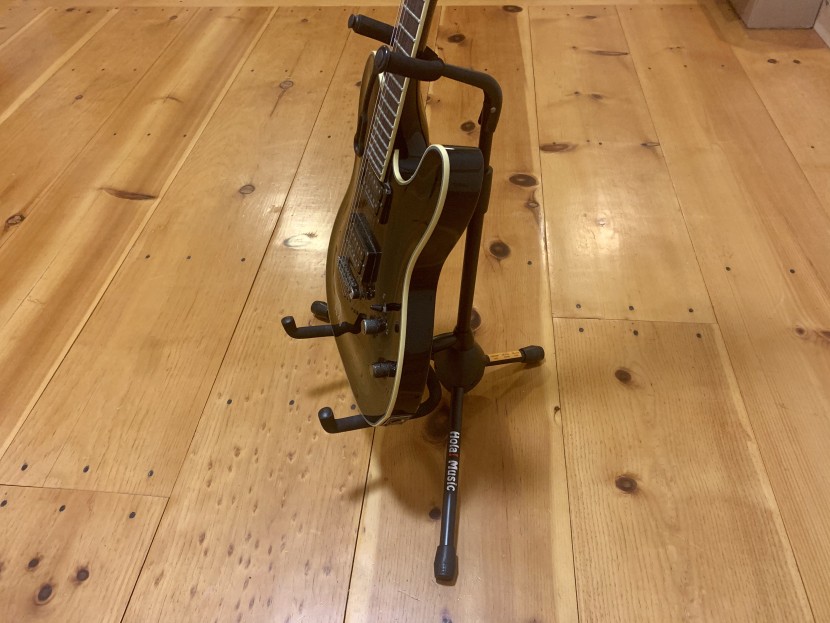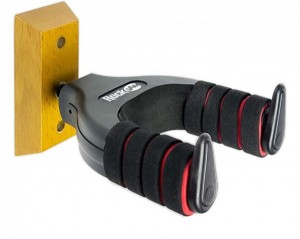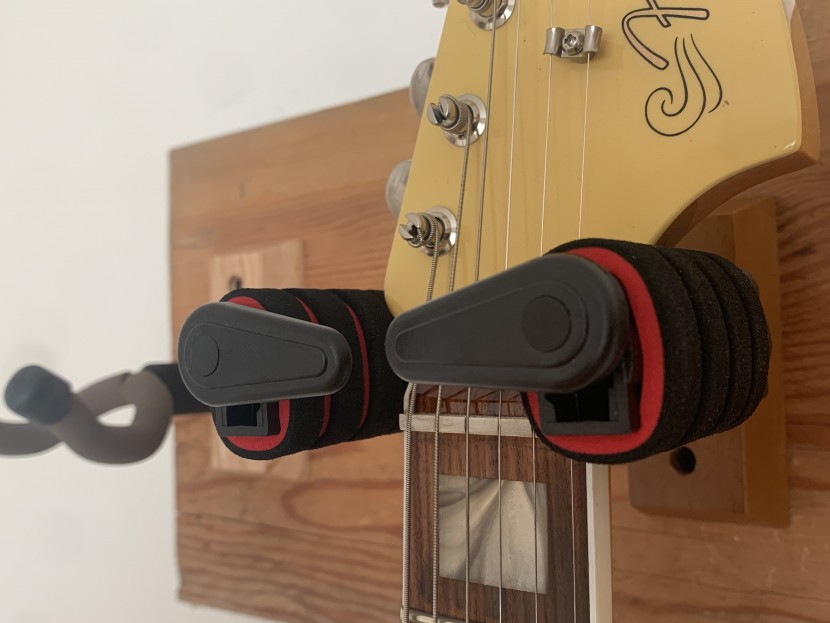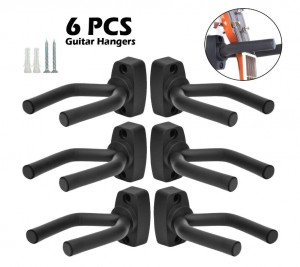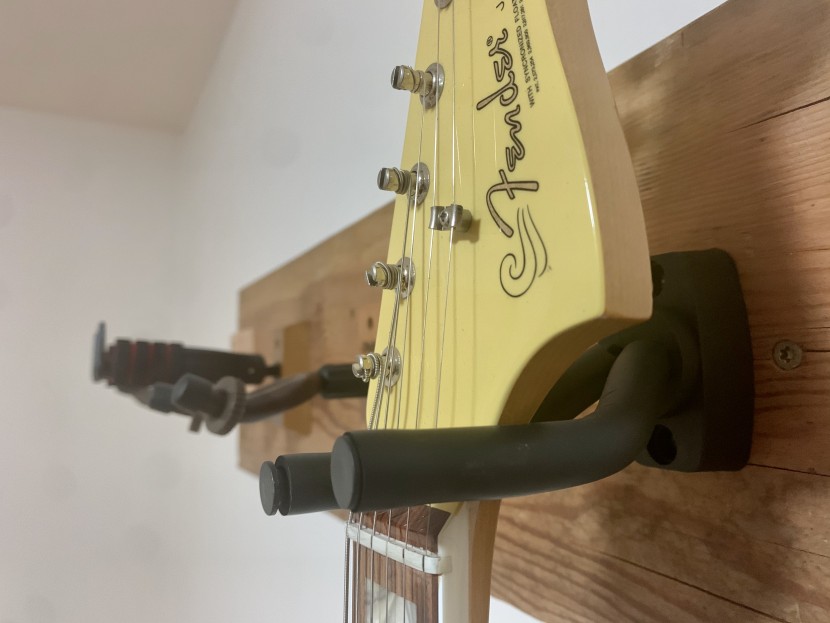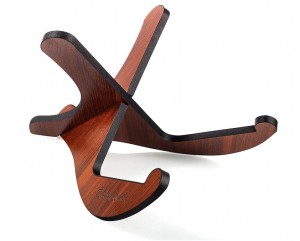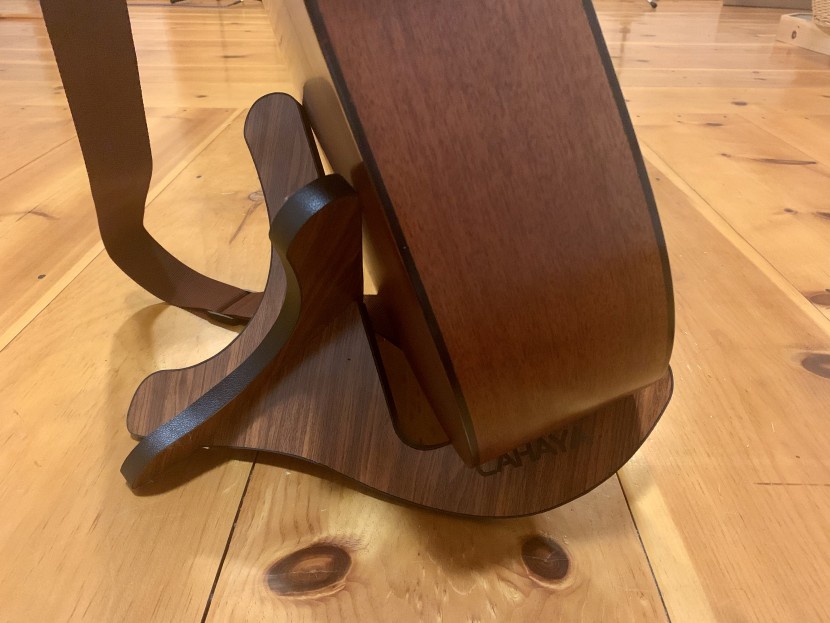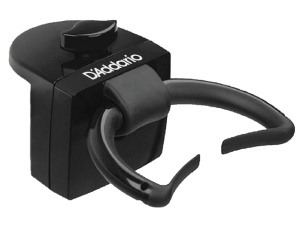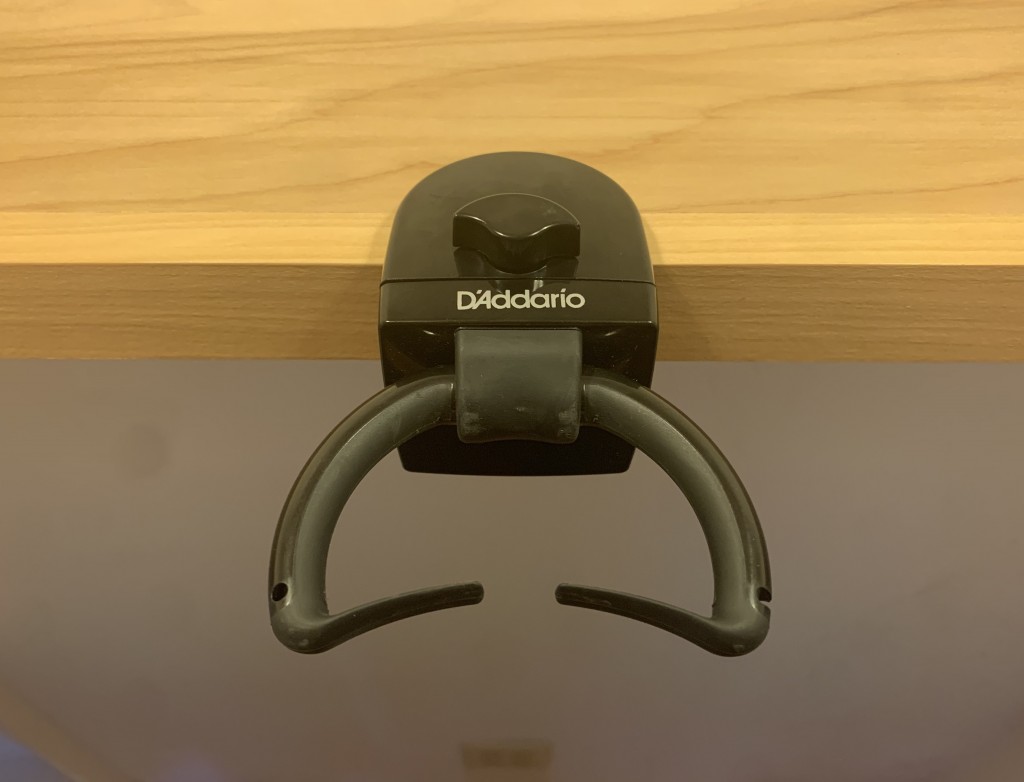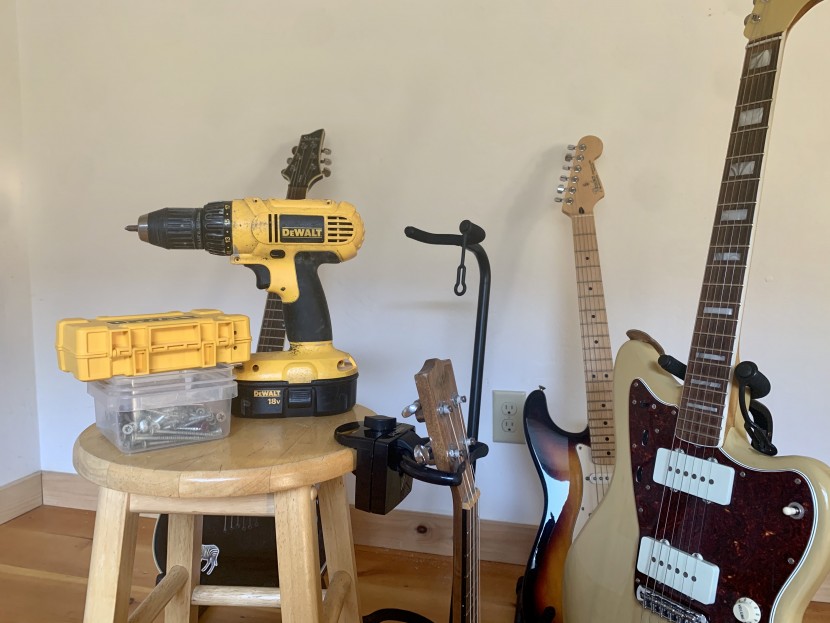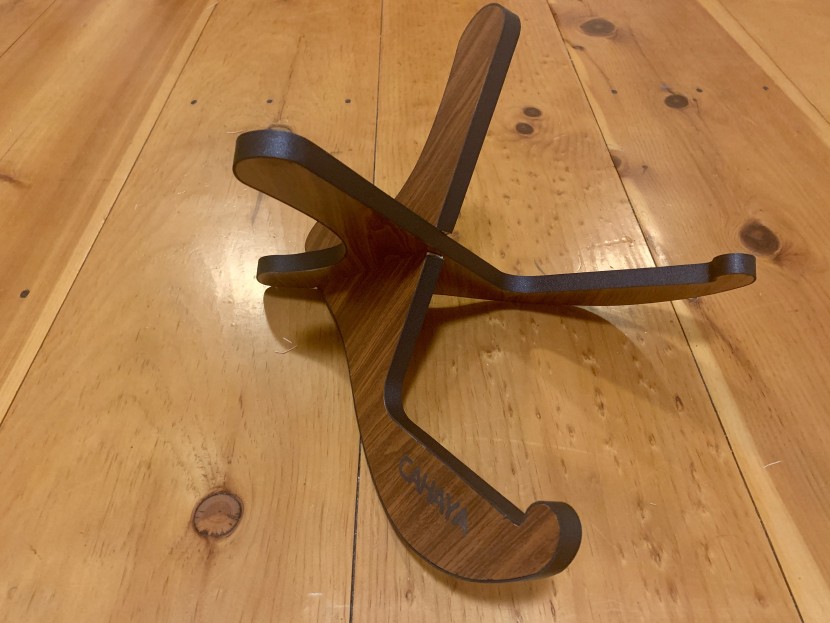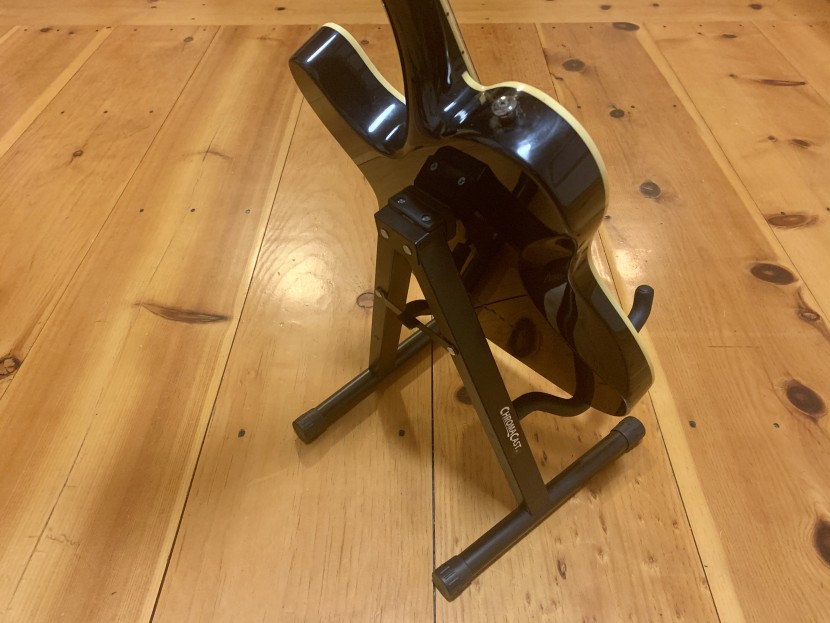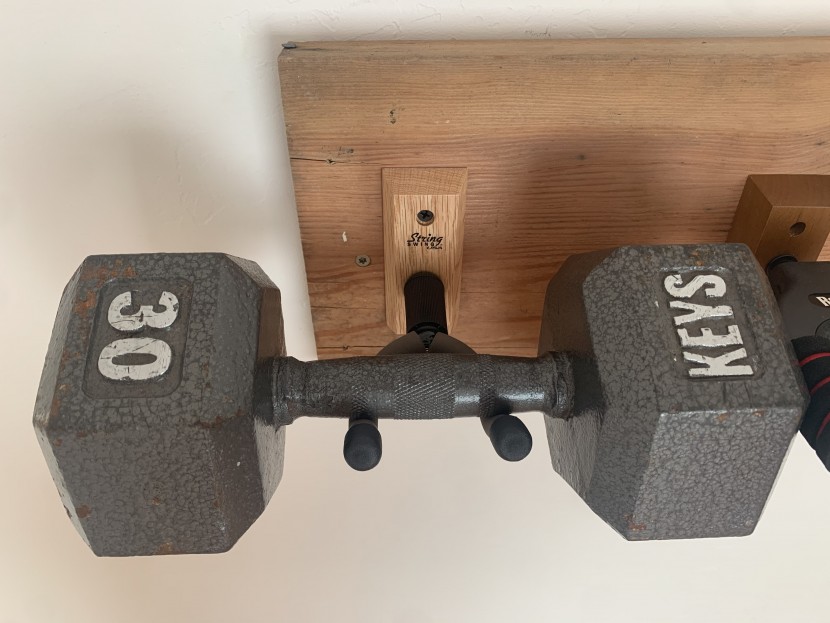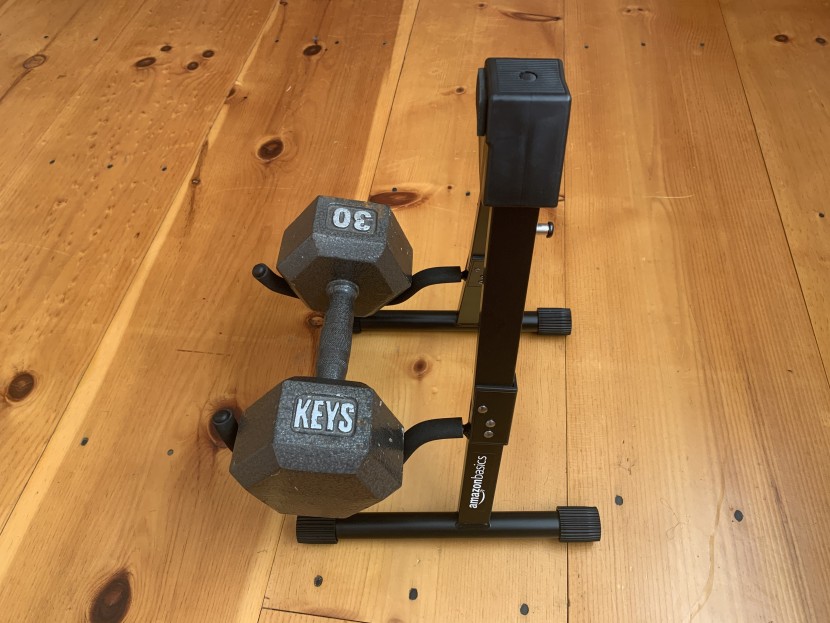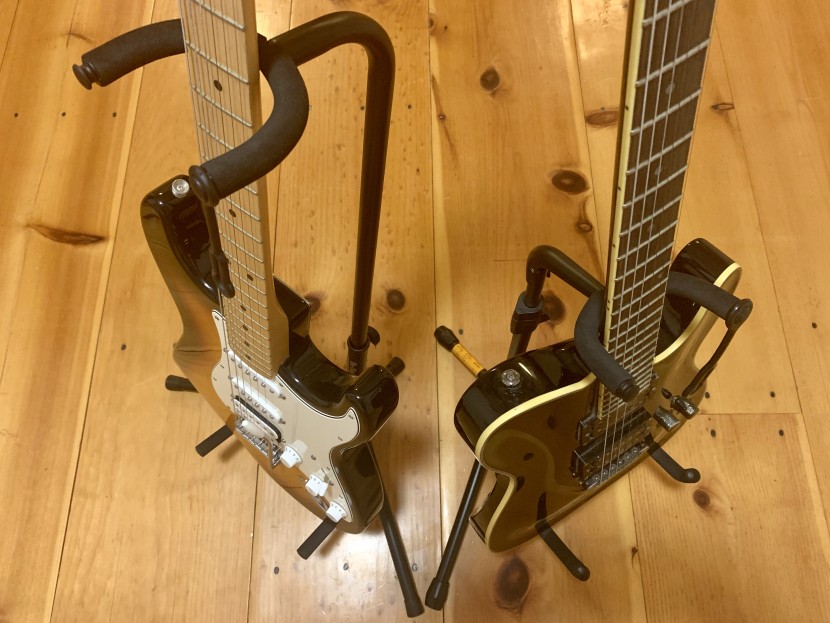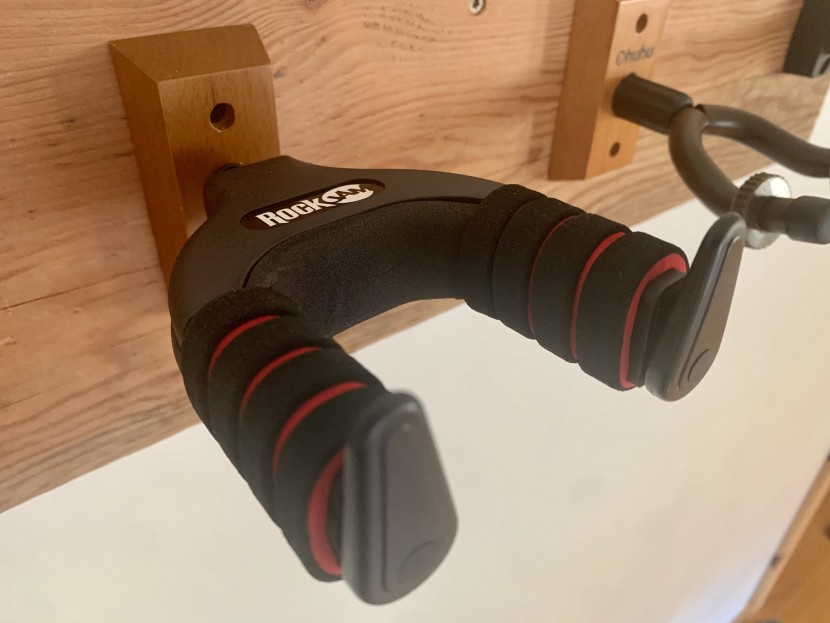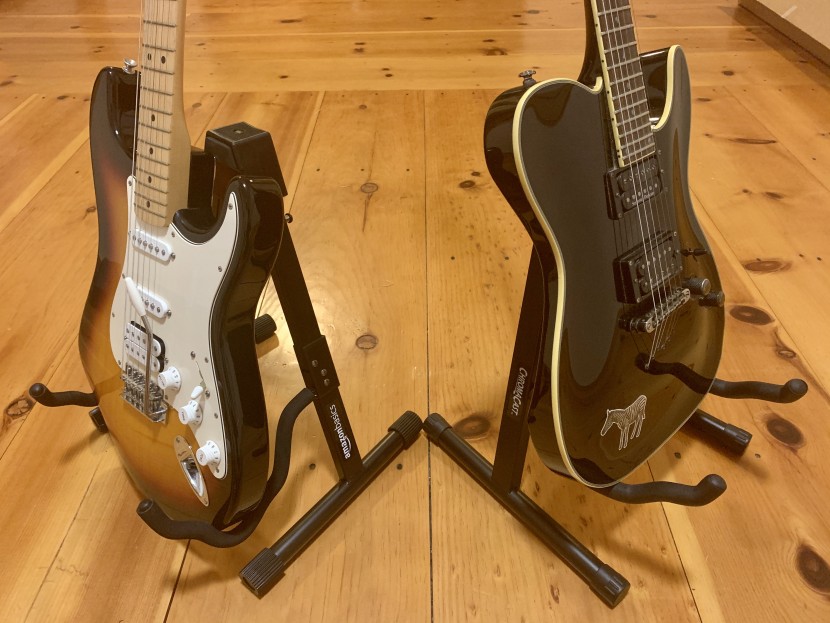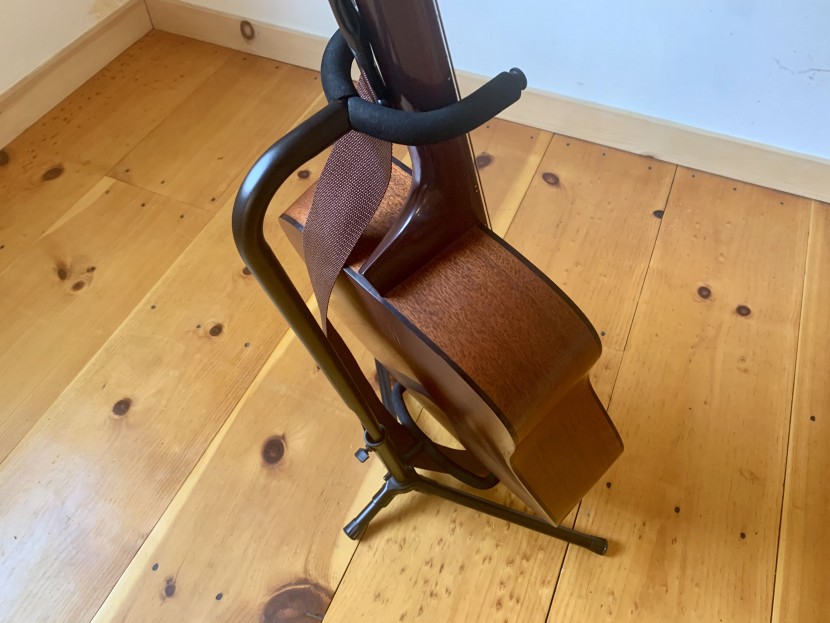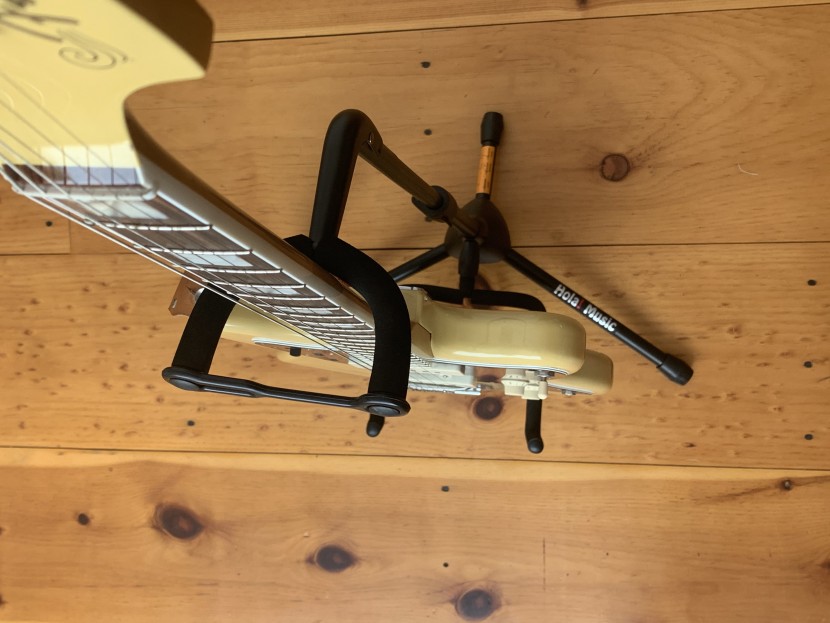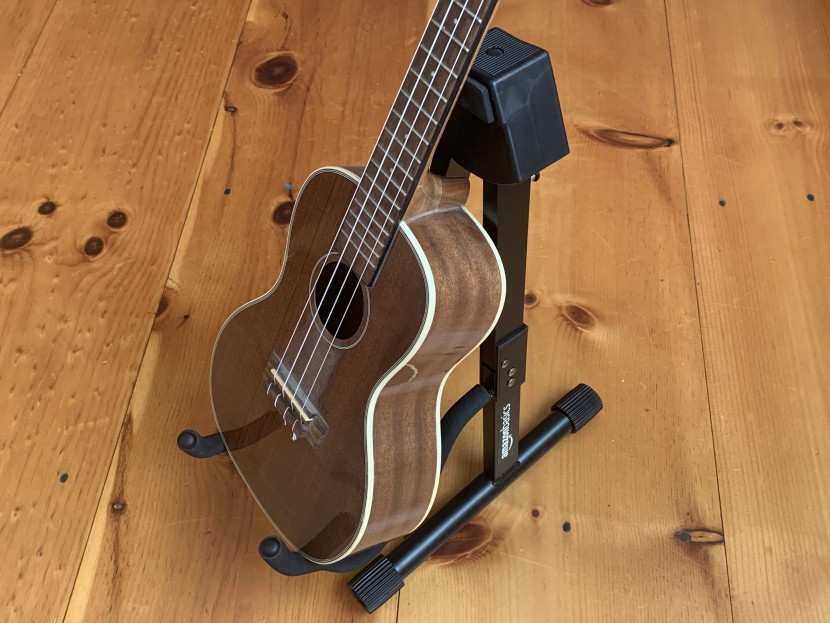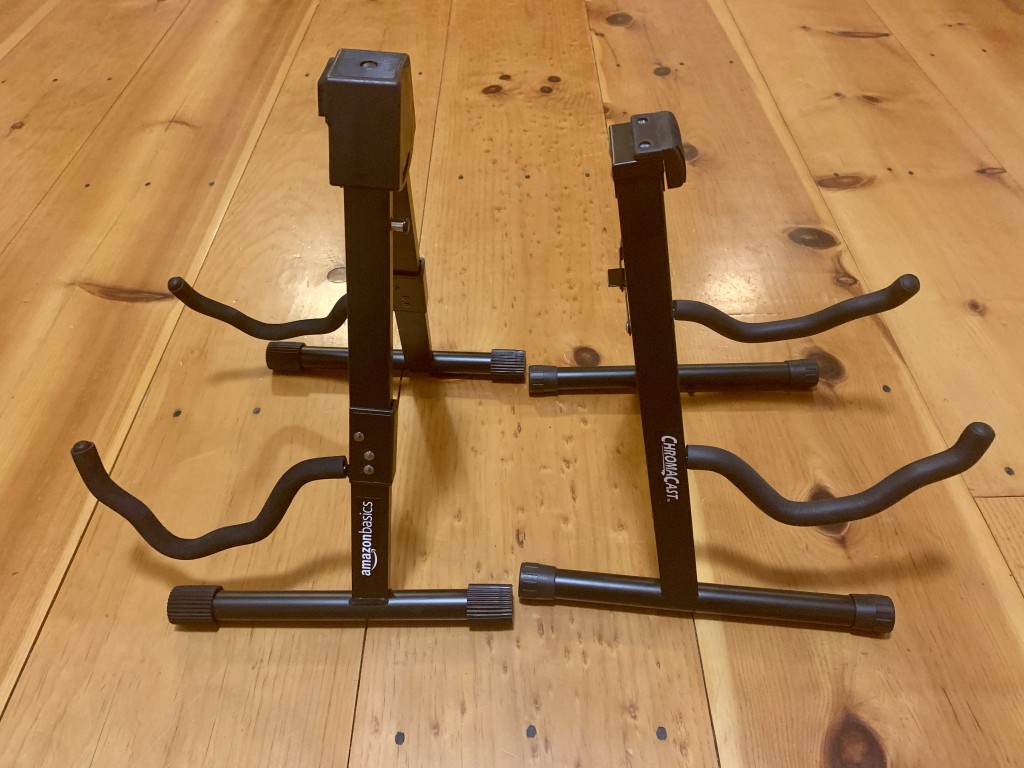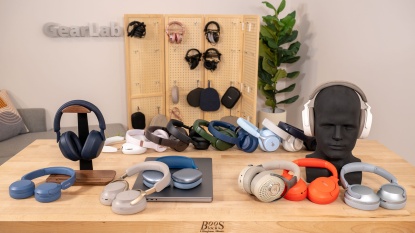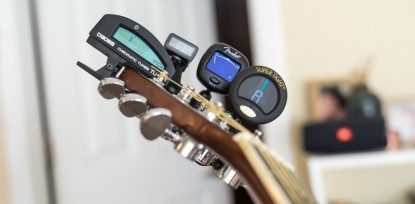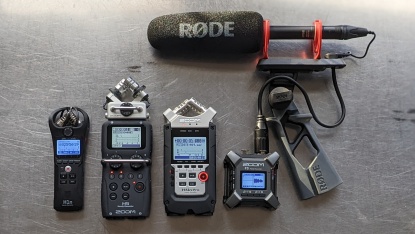Our musical experts researched over 50 of the best guitar stands before carefully selecting 11 to test side-by-side. In this update, we feature the market's latest and greatest. After purchasing each model, we evaluate them side-by-side and assess the differences. Over months of in-home testing, we tested them with guitars of all shapes and sizes. We assess stability, features, and quality — all to ensure that you purchase a stand that'll help protect and keep your guitar well stored when you're not learning a new song or producing wonderful art. We take the guesswork out of shopping online to help you find what you need.
Learning how to play guitar? Our review of beginner guitars is a great place to start your musical journey. We have also tested guitar tuners to help you hit the right notes. If you're looking to pick up a new hobby, take a look at our other reviews for the top-rated ukuleles, home brewing kits, crochet kits, and more.
Our Top Picks
Best Guitar Stands
Stand Type: Freestanding (A-Frame) | Portable: Yes
The Amazon Basics Folding A-Frame is our favorite overall stand for a variety of shapes and sizes. We appreciated the combination of sturdy craftsmanship, adjustability, and easy setup. It comes with three different width settings, making it highly adjustable and easily compatible with an acoustic, electric, or bass guitar. We were fans of its single-piece folding construction, which makes setup easy as pie. This unit can hold a lot of weight, accommodating the heaviest of instruments.
Although there is plenty to love, we had some minor complaints with this Amazon Basics model. During testing, we found the unit struggled to effectively hold and balance oddly shaped guitars. We also wish the padding was slightly thicker to help better balance said instruments. Aside from that, it's our favorite model, and it looks terrific as a display piece in a living room or bedroom.
Stand Type: Freestanding (Traditional) | Portable: Yes
The On Stage XCG4 is the best performing traditional-style guitar stand we tested. Overall, it performs well in every category. Setup is relatively uncomplicated, and the minimal parts that it comes with are intuitive to connect and did not require directions to put together. It especially stands out for its familiar, easy-to-use design. The included security strap over the neck helps ensure that a minor bump won't accidentally knock it over.
This stand tests well across all the metrics, and most of its flaws are minor or don't affect performance in a major way. Our lead reviewer noticed that the unit tended to tip backward when weighted, but this is likely only an issue if someone leaned on the stand or instrument. We did feel the padding could be a tad thicker, but it is adequate. The On Stage XCG4 is a traditional stand that performs precisely how it should, and as a bonus, comes in a two-pack.
Stand Type: Wall Hanger | Portable: No
The Ohuhu Wall Mount Hanger is a high-quality wall-mounted instrument stand offered at a great price. The combination of sturdy construction and a decent amount of padding doesn't leave much more to be desired. Couple that with the fact that it can hold many different styles of guitars and instruments, and you can see why it scores well over our testing metrics.
The unit includes silicone rings at the end of the holder's arms, but these don't seem to offer any additional security. One of the few drawbacks to this stand is the straight arms. We find that hooked arms help to prevent instruments from finding their way off the end of the hanger. The setup time is a bit longer for this unit as well. Notwithstanding, this unit performs well in the tests we put it through.
Stand Type: Wall Hanger | Portable: No
The String Swing CC01KOAK is the best wall-mounted stand tested. Its ability to hold at least twice as much weight as the suggested 15-pound limit led us to recognize it for its sturdy build and excellent balance. It's incredibly versatile and can hold any instrument of any shape or size we tested. The soft and rubbery padding on the hooked arms helps to ensure your instruments are well-protected and will stay in place on any wall. It's also worth noting that there are several different options for wood, which can match the aesthetic of your particular home or studio.
Despite being highly secure, the ease of setup isn't entirely straightforward. Although the process is quick, we needed to bust out the tool set to install it. The unit is fixed, meaning there really aren't any adjustability options, which isn't a big deal for most users. In the end, the String Swing CC01KOAK is an attractive wall mount that boasts protective features and excellent stability for any size guitar.
Stand Type: Freestanding | Portable: Yes
For the serious musician or the multi-instrument household, the Hercules 5-Piece Rack guitar rack is hard to beat. It requires no assembly; you simply unfold the A-frame style design, and you're ready to rack your guitars. This rack proves to be incredibly sturdy and has no trouble accommodating 150 pounds of weight, and its wide base isn't prone to tipping, even when bumped. The sturdiness of the design, plus the addition of a thick layer of padding where the body of your instruments sits, gives us a good sense of security. The shape also lends itself to racking electric, acoustic, and bass guitars, all equally as well.
Our main complaint with this model is the amount of space the rack takes up. The guitar neck holders are deep enough to be reasonably secure but not as secure as those with neck straps. This stand is ideal for those who want a quick and easy way to securely store their quiver of instruments.
Stand Type: Freestanding (A-Frame) | Portable: Yes
The ChromaCast Folding A-Frame is a well-built, sturdy guitar stand. Out of all of the units we tested, it was only rivaled by the Hercules5 Piece stand in terms of speed and ease of setup. Even though it offered a quick setup, it did not sacrifice anything for construction quality. This unit, much like the Amazon Basics Folding A-Frame, was able to hold heavy weight without tipping. This stand really couldn't be easier to use.
Where it lacked was in adjustability, padding, and multi-instrument use. Without the adjustability of the other A-frame style stands we tested, this product was not able to easily hold off-axis guitar shapes or the ukulele we tested. Furthermore, we wished the padding was a bit thicker and/or perhaps a different kind of material. The padding protecting the backside of an instrument's body was particularly flimsy. Beyond these few caveats, we could see this highly portable stand being used just about anywhere you might need to give your instrument a rest.
Stand Type: Freestanding | Portable: Yes
The Hola! Music Universal Stand was the only stand of its kind to hold any instrument that we tested on it. For this reason, we genuinely believe that this product lives up to the title of “Universal” in its name. Additionally, we found the unit to be quite easy to use and also reasonably secure, given the included strap that can be positioned over the neck of your instrument.
We encountered a few issues that caused this stand to lose some ground to its competitors. When we received it, a small piece of foam padding fell out of the box. Unfortunately, it wasn't immediately clear that this piece belonged on the lower arm portion of the unit; this caused it to take a little bit more time to assemble than some similar units. Furthermore, the hinge on the neck of the stand has a design flaw, sometimes causing that portion to require readjustment over time. We also feel the padding could be somewhat thicker and softer. Despite these minor flaws, this is still a good option you can use with many styles of guitars or other instruments.
Stand Type: Wall Hanger | Portable: No
The RockJam Guitar Hanger is a decent model that offered excellent padding and a unique security feature. The padding on this unit was ideal, as it is thick, durable, and soft. We based other units' padding scores off of this hanger for that reason. It also offers a unique weighted mechanism that positions security arms in front of your instrument after placing it on the hanger; this adds a good deal of security to your stored guitar. Almost any instrument that we tested worked well with this product except for the ukulele we used, which was too light to activate the automatic security arms.
Though it performed well in several categories, the RockJam Guitar Hanger did not do well in the weight test. The stand simply could not hold the amount of weight we tested on it. Setup took longer than any of the other models, but by only enough time to lower its ranking a bit. Overall, this is still a good choice. We recommend the RockJam Guitar Hanger to anyone who wants to be extra sure their instrument doesn't fall off the wall due to someone accidentally bumping it.
Stand Type: Wall Hanger | Portable: No
The VEIDIA Wall Mounts is a hanger-style stand that comes in a pack of six for less than the price of one of the other units we tested. Even though this choice is supremely cheap, it was still very high performing in ease of use and multi-use capabilities metrics. The unit is simple enough to set up, and once it is set up, it can be slightly adjusted to better hold the awkwardly cut headstock of certain instruments. In addition, this product was quite versatile and could hold any instrument we put on it.
Though some aspects were fine, the lower quality materials resulted in sub-par performances in our testing of padding and weight. This model simply cannot hold as much weight as some of our other contenders. The padding consists of an inexpensive type of foam material; our lead reviewer noted that over time this less expensive kind of padding might break down and lead to thinner padding and poorer instrument security. Also, the hanger arms on this unit are completely straight. Again, our team would rather see hooked arms that help to prevent instruments from falling off the end of the unit. If you're looking for an inexpensive way to mount several guitars on a wall, this is a great choice to consider.
Stand Type: Freestanding | Portable: Yes
The CAHAYA Universal Wooden stand offered a unique and simple design that works well for certain applications. With only two interlocking pieces, this unit was easy to assemble. The assembled design is quite brawny, as it handled our weight testing with relative ease. Our lead reviewer also appreciated the wooden and unique styling of this unit.
On the downside, we encountered some major design flaws during testing. The first and most notable flaw relates to the padding. The thin strips of padding “tape” were already delaminating when our team received the stand; this thin padding left much to be desired. Moreover, this model had some balance issues as it easily tips forward when applying weight toward the front. Lastly, we felt the word “universal” does not apply here because this stand really only excels at holding acoustic guitars. We tested many other electric guitars, and this unit simply could not hold them in a normal position. If you have a love for acoustic guitars, this option will work fine; otherwise, we recommend considering another product from our lineup.
Stand Type: Clamp-Style | Portable: Yes
The D'addario Dock was an interesting concept that fell short in practical application. Despite its flaws, it did provide excellent portability and ease of setup. For portability, you could put the guitar dock in a backpack or guitar case to create a guitar stand almost anywhere. It's also extremely easy to set up, provided you have the right surface to attach it to.
Unfortunately, that's about where the positives ended. We believe that when you buy a guitar stand, the instrument should not be in contact with any other surface other than the stand itself. The guitar dock is designed to have an instrument sit on the floor with the neck resting on the guitar dock; this may not be a huge issue if the guitar is sitting on a carpeted floor, but many surfaces are hard. In this way, the guitar dock is not actually a guitar stand, but rather a “dock”. It's not so different than resting your guitar against an end table or chair. For these reasons, we can't recommend the guitar dock as a good way to store and protect your valuable instruments when you are not playing them.
Why Trust GearLab
Our lead reviewer, Adam Minich, received his first guitar at the age of four. Okay, it was a toy guitar, but something stuck, and he has continued to study, practice, and play guitar for over 20 years now. He has worked on various music projects throughout that time. In addition to guitar Adam plays piano, drums, percussion, Ukulele, Bass, and sings. Most recently, he has been working with his band on a second studio album. As a guitarist, Adam knows that guitar stands are a rudimentary, yet vital tool that is needed for both convenience and protection.
In addition to music, Adam enjoys gardening, hiking, climbing, skiing, and pretty much anything else outdoors-related. He also strives to do as much of his own motorcycle and vehicle maintenance and repairs as possible. When not reviewing for GearLab, he works professionally to help troubleshoot complex database design issues.
Analysis and Test Results
Our lead tester identified five overall categories of significance to contrast the different guitar stands tested. We used a variety of metrics to evaluate the performance of each model. After 25 hours of testing per unit, these factors helped our lead reviewer to identify the standout guitar stands that did their job the best.
Ease of Setup
No one likes encountering fussy products that are hard to piece together. In preparing for the unboxing and assembly, our lead tester gathered scissors, a powered screwdriver, a level, and the various drill bits that were potentially needed. He then noted the time it took to fully unpack and assemble each of the units we tested. Certain models needed no tools at all, while others required using several tools, which ultimately made them a bit more time-consuming to assemble. It's worth noting that all of the units tested included the necessary hardware for proper installation.
In testing the various stands, two types of stands became evident: those that require drilling and those that don't. Essentially, any of the wall-mounted guitar hangers took a longer time to set up because of the time needed for proper leveling and drilling. The Veidia Wall Mount, String Swing CC01KOAK, Ohuhu Wall Mount, and RockJam Guitar Hanger models all required several tools and extra time to secure to a wall. Although none were particularly challenging to piece together, the additional time spent constructing did lead to lower scores.
All of the other units tested either required no tools or just scissors. The Hola! Music Universal Stand proved to be a little more difficult to assemble than any of the other freestanding units. The upper extension arm was challenging to fit into the lower part of the stand, and a small foam piece had fallen off. Without any instructions, it took some sleuthing to figure out where that piece of foam belonged. The Cahaya Universal Wooden is the simplest design out of any of the units we tested. It is just two pieces of wood that fit together using a joint method that requires no glue or screws. This unit was straightforward to put together, but it can be assembled incorrectly, so best to use a photo to ensure proper assembly.
Stands that stood out as easy to assemble were the Amazon Basics Folding A-Frame, On Stage XCG4, ChromaCast Folding A-Frame, and D'addario Dock. The On Stage XCG4 required minimal assembly that was easy to accomplish, even without instructions. Both A-Frame units merely required unboxing, pulling apart, and placing on the ground to be ready to use. The D'addario Dock was assembled in just over 30 seconds. All you need for the complete setup of this unit is a shelf, chair, or some other solid horizontal surface to fit the guitar dock onto.
Sturdiness, Security, and Balance
In testing the stands for sturdiness, security, and balance, we performed a few different tests. For sturdiness and balance, we used a 30-pound dumbbell to test the units to the extreme. Note that this amount of weight is not recommended for any of the stands, and most instruments, save for a steel guitar or dobro, probably would not weigh close to this much. Most guitars weigh around 10 pounds. Some units simply couldn't bear the weight, while others performed miraculously. For security and balance, our lead reviewer also looked for particular features such as a security strap and bent hooks or arms, which helped to fully secure the instrument in place. Finally, we noted any designs that were prone to tipping in one direction or another.
The Veidia Wall Mount, RockJam Guitar Hanger, and D'addario Dock all failed to be able to hold the 30-pound weight effectively. To be fair, the D'addario is not designed to hold that amount of weight, since it relies on instruments to be resting on a surface. The Hola! Music Universal Stand could hold the weight; however, due to slight balancing issues, the weight could cause the stand to tip in one direction or another. For these reasons, all of these units received lower marks in our sturdiness and balance test. The RockJam Guitar Hanger and Hola! Music Universal Stand did, however, make up some points because of their security features. The RockJam Guitar Hanger has a unique mechanism that secures the neck of a guitar when weighted. The Hola! Music Universal Stand has a manual rubber strap that ensures that a guitar wouldn't fall forward off that stand. The D'addario Dock has some “splines” to help hold a guitar in place; however, this feature was not enough for it to make a strong showing in the balance, security, and sturdiness metric.
Units that performed honorably in these tests included the Amazon Basics Folding A-Frame, String Swing CC01KOAK, ChromaCast Folding A-Frame, and Ohuhu Wall Mount Hanger. Both A-Frame units were extremely sturdy and likely could have held additional weight. The real surprise was the guitar hanger units. Both the Ohuhu Wall Mount Hanger and String Swing CC01KOAK did an impressive job of balancing and securing guitars in place. Additionally, they handled the 30-pound weight just fine, with minimal to no signs of bending or failure. If you have a heavier instrument, then any of these choices would work great.
Padding
When you put your instrument down, the last thing you want to question is whether its finish will still be as nice when you go to pick it up the next time. Part of keeping your instrument beautiful and protected is the padding the manufacturers chose to use on each guitar stand. All of the products we tested were thoroughly inspected to see where padding proved adequate as well, as where it may have been lacking. Additionally, the type and thickness of the materials used were also evaluated. In the end, no units were able to achieve a perfect score in this metric as they all seemed to lack something; however, some were clearly better than others.
In our findings, the Veidia Wall Mount, Cahaya Universal Wooden, and D'addario Dock stands all offered below-average padding. The Veidia Wall Mount has padding that seems cheap and a bit thin, leaving our reviewer to believe that the padding material could break down over time. The Cahaya Universal Wooden guitar stand has a very thin strip of protective padding that was, unfortunately, delaminating right out of the box — without any kind of heavy use. Then there was the D'addario, whose design necessitates the need for an instrument to be sitting on the floor and leaning onto the guitar dock. Unfortunately, the dock does not offer much in the way of padding for the neck of the instrument, either.
The String Swing CC01KOAK, Hola! Music Universal Stand, On Stage XCG4, and Ohuhu Wall Mount Hanger all provided adequate padding. Our reviewer noticed that all of these options provided soft padding; he just wished that it were a bit thicker to provide better instrument security and durability over time. The biggest standout in this category was the RockJam Guitar Hanger. It has noticeably thicker padding that was soft, contoured, and covered most of the contact points where an instrument would land when you set it down. The common issue with any of the hanger-type guitar stands is that they don't provide any padding to the backside of an instrument. Usually, this issue can be easily avoided by taking extra care when you set your instrument down, but we are all human, and sometimes an unfortunate ding might occur.
Ease of Use
After you get done playing, we believe it should be easy to put an instrument down without having to make many adjustments or perfectly place it on a stand every time. Here we tested the process of placing various instruments on each of the products, noting when there were difficulties or especially easy operation. By paying close attention to any design flaws, our team was able to gain clear insights into why some stands were better than others. Our lead reviewer also found that certain styles of guitars required more finagling to rest properly, but that is covered more extensively in the next metric.
Two of the products we tested underperformed compared to the rest of the field. The Cahaya Universal Wooden stand was okay in this metric, but it depended on what kind of instrument we tried placing on it. Due to the Cahaya's lack of adjustability, it's really up to you to place the instrument on the stand effectively. The stand that received the lowest marks in this metric was the D'addario Dock. This product offers a unique design that is highly portable; however, you need to have the right surface to attach it to for the instrument you are trying to rest on it. Even if the guitar dock is in a more permanent location, it still underperformed here. Splines help to hold the neck of the guitar in place, though we found that these splines would sometimes get stuck in between strings when “docking” or “un-docking” an instrument.
All of the other stands that we tested received good marks in this category, but a few were exceptional. The Amazon Basics Folding A-Frame and Hola! Music Universal Stand both provided a good deal of adjustability that allowed for easy use. Our lead reviewer wishes the Hola! Music stand had some kind of locking feature on the folding neck near the top of the stand, and the Amazon Basics A-frame was, at times, difficult to place certain guitars on. Stands that performed perfectly in our tests were the On Stage XCG4 and the RockJam Guitar Hanger. Each one was able to hold a variety of instruments without requiring extra adjustments. The RockJam has a great design that automatically secures an instrument in place when weighted, which makes for quick placement. The On Stage unit was adjustable and made placing almost any instrument feel natural and easy.
Multi-Use Capabilities
For our final metric, we looked at which stands could hold different types of guitars and perhaps even other instruments. Our lead reviewer tested three different electric guitars, two acoustics, a ukulele, a bass, and a mandolin. Electric guitars tested included a standard strat style, a tele body style, and the oblong and awkward cut of the Jazzmaster style. Certain units could handle any type of instrument we placed on them, while others proved to be lacking or one-dimensional.
Three of the stands we tested did not perform admirably in our tests. The ChromaCast Folding A-Frame held acoustic guitars and strat or tele style electrics well, but it could not hold the oddly shaped Jazzmaster. The D'addario Dock could hold most instruments we tested, but if the instruments were different enough in size, then it required us to find a new object to secure the guitar dock to before resting that instrument on it. Then there was the Cahaya Universal Wooden stand. If you place an acoustic guitar on it, the stand performs fine; however, the unit does not seem to be designed to hold any electric guitars in a normal way, which caused it to score the lowest out of the units we tested.
All of the hanger-style stands were able to hold just about any instrument we placed on them. The great thing about the hangers is that the off-axis body stylings of electric guitars don't cause balance issues since the instrument is being held up at the neck and head. The only non-hanger to receive a top score in this metric was the Hola! Music Universal Stand. This unit offered the most adjustability out of any of the units we tested, which means it can hold just about any instrument. It was able to effectively hold the Jazzmaster, despite its awkward shape. It could even be adjusted small enough to effectively hold a concert-size ukulele. If you have a variety of instruments that you may need to use your stand for, then any of the options here would be good choices.
Noteworthy Features
Although it was not used as a defining metric throughout our testing process, it's worth noting which units we considered portable and which are designed for more permanent placement. All of the hanger-style stands are considered permanent because they would require tools to remove and set up again. If you are looking for a highly portable stand, either of the A-Frame units we tested is a great choice. Since they do not have any removable parts, you simply fold them up, transport them to the next location, and unfold them. These units would be especially good for the gigging musician who may need a stand on stage to hold their various instruments.
Another item worth pointing out is that certain units include multiple stands in a single shipment. The Ohuhu Wall Mount Hangar and the On Stage XCG4 both came shipped as two-packs. These models tested well, so having two was twice as nice. The Veidia Wall Mounts came shipped in a pack of six units for the price of one! That is a pretty incredible deal, though it's worth noting that this product was not the best performing.
Conclusion
Sure, you could put your guitar away safely in a case, but sometimes it just makes more sense to keep it out. If you are displaying it, you want it to be resting on a stand that will protect the finish without being overly difficult to set up or use. Our tests were carried out by people who love music and gear and value the proper care of musical instruments. Whether you are at home, on the road, or in a studio, we hope that our investigation can provide you with a clear picture of which stand will suit your instrument and individual needs.
—Adam Minich


